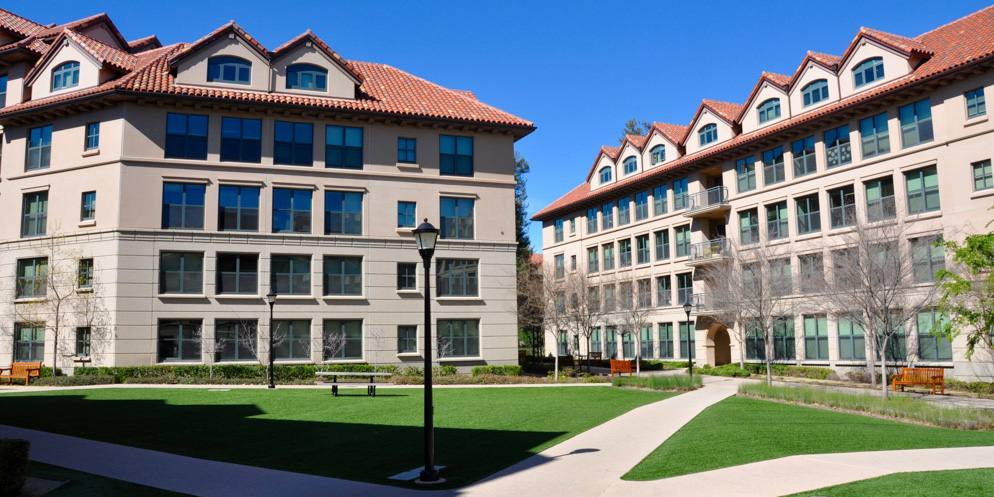As an Editorial Board with predominantly undergraduate members, we have a tendency to focus on the needs of undergraduate students. We represent, perhaps, one among many institutions at this University geared to serve undergraduates, at the expense of the University’s large graduate population.
Currently, graduate students are shouldering the demands of the University’s teaching and research responsibilities, while facing the prospect of a bleak job market and uncertain financial future. On top of this, graduate students face a growing affordability crisis stemming from the high cost of living at Stanford. These well-documented struggles predate the pandemic, but they have been exacerbated in light of it. This economic uncertainty adversely impacts all graduate students, but it places particular strain on low-income students, students from BIPOC communities and students supporting children and other family members. Under the current circumstances, these deepening inequities make it almost impossible for students from historically excluded backgrounds to be graduate students.
As an Editorial Board, we call on the administration to immediately extend graduate student funding by one-year and fund all health insurance premiums for graduate students and their families.
Extend funding
Since the spring graduate students have been asking Stanford for a one year funding extension. This would provide graduate students with crucial flexibility in light of the current uncertainty. Harvard and Yale have already announced that they will provide their graduate students with this extension. Stanford must immediately follow the lead of these other universities and listen to the thousands of graduate students who have requested this extension.
At the moment, funding is left up to the discretion and resources of each individual department, off-loading the financial strain on to graduate programs. In her letter responding to graduate student concerns, Dean Satz notes that “each department needs flexibility to determine what strategy works best for supporting their students.” This decentralization, however, has led to vastly different material circumstances of graduate students, particularly those dependent on departmental or school funding. Departments must stretch their existing budget to address the basic needs of graduate students, and that support is inevitably limited. The University must provide a baseline across the board, with adequate funding to show that graduate student support is a top priority.
Improve healthcare affordability
Beyond this extension, this pandemic heightens the need for truly affordable and accessible graduate health care. Currently, some, but not all, departments cover the costs of health insurance premiums for their graduate students. This inconsistency across departments has always placed students and families at risk; however, this affordability barrier has particular consequences now when equitable access to health care is a central safeguard against the pandemic. That is why Stanford must take this moment as an opportunity to permanently fund all health insurance premiums for graduate students.
These two changes are necessary and time-sensitive. Without these reforms, graduate students will suffer. In particular groups that are most vulnerable and already underrepresented in the graduate student population, including Black and Indigenous students, will suffer. However, they are not all that is required to support graduate students, but they are a starting point.
Improve housing affordability
Beyond these two most essential reforms, this moment has illustrated the profound affordability barriers that prevent many from completing a graduate education. Perhaps most pressing among these barriers is housing, with the cost of a room or apartment on Stanford’s campus being disproportionate to graduate student income. Therefore beyond extending funding for study and health care, the University must consider placing a cap on housing prices, ensuring no graduate student is required to pay more than 30% of their income toward housing.
Correct the power imbalance between the University and the students
Furthermore, this current crisis has continued to highlight the power imbalance between graduate students and the University. The University acts as a graduate student’s employer and landlord. The tenuous position this places graduate students in was made painfully clear when the Campus Compact was released. Graduate students were required to sign the Compact to live on campus, yet were not consulted in its drafting. The Compact also specifically provides the University with the power to evict students who do not follow its guidelines, which include not just disallowing gatherings of friends but also prohibits the visits of any significant others or family members.
It is time that both this Editorial Board, this newspaper and the University as a whole give graduate students the platform and accommodations they deserve, and have long been asking for.
Beyond administrative apathy in this arena, there is also student apathy that some of us on this Board have been complicit in. We call on all of Stanford’s administrators and students to attend the Reverse Town Hall which Abolish Greek Stanford, the Black Graduate Students Association, Sexual Violence Free Stanford, the Stanford Basic Needs Coalition and the Stanford Solidarity Network will be co-hosting to discuss issues that impact graduate and undergraduate students, particularly low-income and BIPOC students from both these cohorts.
The summer Editorial Board consists of Claire Dinshaw ’21, Layo Laniyan ’22, Elizabeth Lindqwister ’21, Adrian Liu ’20, Patrick Monreal ’22, Megha Parwani ’21 and Cooper Ryan Veit ’22.
Contact the Editorial Board at opinions ‘at’ stanford.edu.
The Daily is committed to publishing a diversity of op-eds and letters to the editor. We’d love to hear your thoughts. Email letters to the editor to eic ‘at’ stanforddaily.com and op-ed submissions to opinions ‘at’ stanforddaily.com.
